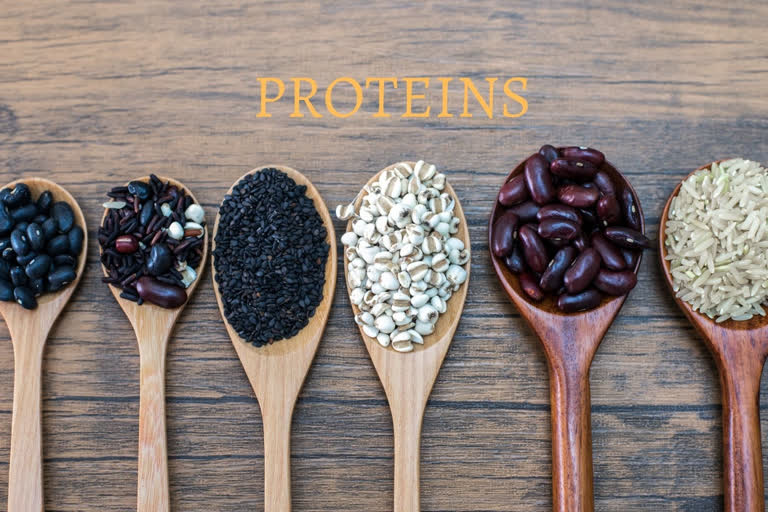Nowadays many youngsters give importance to only one nutrient and that is PROTEIN. Now, what’s this hype about Proteins? Let’s try to know the functions, the food sources, and how it is beneficial but yet can prove to be harmful if not taken in moderation. ETV Bharat Sukhibhava spoke to Vandana Kakodkar, for more information on the same.
What is our requirement for proteins?
Approximately an individual requires 0.8 to 1.0 gm/kg body weight of protein. For e.g. a person who weighs 50 kg requires 40-50 gm of proteins per day. This can be met by consuming 2-3 katoris of pulses, 1 -2 glasses of milk products and the rest can come from cereals (rice, jowar, wheat etc.). A person who is a nonvegetarian can consume 2 -3 pieces of fish or 1 big piece of chicken or 2 eggs and the rest through the cereals like rice or chapatti.
What role does protein play in our bodies?
- Proteins are considered the primary bodybuilding nutrients. They are needed for growth and development.
- Proteins provide the structural basis for the skin, muscles, organs, and glands.
- They are found in all body fluids except bile and urine.
- They are needed to repair and replace worn-out cells and tissues.
- Help to maintain the PH of blood
- They are integral components of enzymes, some hormones, and antibodies
They provide the material for the formation of blood, skin, hair, nails, muscles, organs.
How do we get proteins from natural sources?
- Proteins from animal sources like milk and milk products, eggs, fish, chicken, meat, etc. have all essential amino acids and are called complete proteins or high biological value proteins
- Proteins from vegetable sources nuts, pulses, soya bean, dals, mushrooms lack some essential amino acids and are known as incomplete proteins or low biological value proteins.
- But when 2 or more incomplete proteins are eaten together, they complement each other and provides the essential lacking amino acid. for eg. A common cereal pulse combination would be rice and dal or khichdi. As compared to proteins of animal origin, the vegetarian sources of proteins are low in saturated fats, have no cholesterol, and has added benefit of dietary fiber, antioxidants, and phytochemicals.
- So having 1 katori of dal and 1katori of pulses (beans, peas, rajma, moong) along with chapati or rice will definitely fulfill the protein requirement for lunch or dinner.
- Use of soya flour to wheat flour in the proportion of 1: 4 which increases the protein content of the chapatti.
- Don’t overload your body with too many animal proteins as the same can be achieved with plant proteins that are healthier.
- A combination of both during the week will be beneficial.
Inputs from Vandana Kakodkar, a Consultant Dietician, visiting faculty at MES college and a resource person for GIPARD, Goa.



